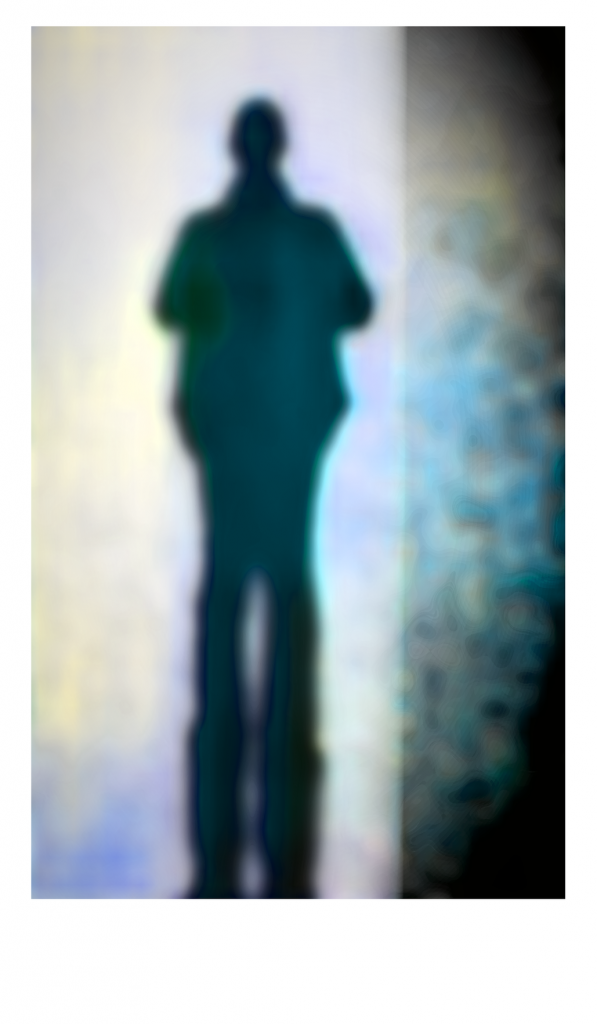
a slippery, errant story made up of half-remembered facts and wilful inventions. But some say it’s not true; they say it’s a stone that you find in the depths of your spirit and then place it firmly in the centre of your being. People want that kind of certainty. But anyone who has lived for even an hour in the world of other people, who has looked at themselves in a shop window and failed to recognize the reflection, knows otherwise. The story changes, is made and remade. Memory itself cannot be trusted; it is a house with all its doors unlocked, every room rearranged each night by a restless hand. This is not a secret, though it is seldom spoken about, except in the sleepless, shivering hour before dawn, when there is no audience left and the inner narrative is left to stammer its overture to the void.
The city, whose avenues are a lattice of anonymous wants, breeds such stories in abundance. Here, among the hush of crowds and the lapping of streetlights, each person moves with a secret, a script murmured into the recessed chambers of their skull. It is impossible to guess, from the neat part of his hair and the gleam of his shoes, whether the man beside you on the train once pressed a match to a field of dry grass just to see the boundary between control and chaos. You cannot know, from the way the woman at the bakery counter inflects your name, ever so slightly, as if you might be a rare species, how many times she’s changed her name or what she’s running from. You cannot know, unless you are a child yourself, that the child screaming in the supermarket is impersonating a feral thing as of a parent she loves more when frightened.
At birth, it is simple. The first story is a name, then a surname, then a nationality, a sex, a religion, a condition of health. All these are supposed to add up to a something, someone, as if a sum of facts could keep a person from fraying. But as the years pass the facts are annexed, invaded, colonized by other stories, so that by adolescence the self is already a ship of Theseus, each plank swapped out for a new one until even the ghosts of the original atoms have drifted into the past. To be an adult is to be an eyewitness to your corruption: the moment you first lied and did not confess; the time you made yourself small and let another take your credit; the time you invented a tragedy to cover for the mundane embarrassment of being overlooked. It is to study the accretions, the fixes, and lies and rebrandings, and recognize them as the only continuous thing.
It is tempting to think this is a defect, a crisis of modernity, but the temptation is itself a story. Even in the age of myth, the gods borrowed faces and habits, bred in secret, lied about their origins. Even in the village, the historian writes, there was no fixed identity more solid than the shifting needs of gossip or alliance. The mask is not a cover but a face, and if the old mask is torn away it is only to reveal a new one, closer to the bone but still not bone.
In each retelling, hurts are sanded down to smooth pebbles or sharpened into weapons, all depending on whom, presently, is doing the asking. The story continues to evolve and contort until the teller is no longer the author but a character at the mercy of its own unreliable narrator, as there is a terror in being known and an even greater terror in not being believed.
Ask anyone who they are, and you will not get an answer. You will get a story, and then another, and beneath them all, a panic. Even the quietest among us, the ones who hope to pass unseen, clutch their narratives like amulets against annihilation, muttering them under their breath: I am this, I am that, I am not what you think. A person may go decades without a single witness, yet the rehearsal continues, as if the most important audience is always the one convened behind the eyes.
At some point, usually late, a person may ask: Is this all there is? Is the self only a collage of stories, a trick of language and memory, a patchwork of borrowed gestures and purchased fears? Or is there something else, a real self? And if so, is it better to be that thing, or to continue passing, moment by moment, according to another?
In the city, the lapping of streetlights continues, indifferent. People move through their lives, through subways and queue-lines and bedrooms and cabs, each one an actor and an audience both, each one blinking and stuttering into the next version of their story. Sometimes, at the edge of sleep, there is the sensation of falling, the momentary panic that nothing holds, that the stories have run out and the self is about to dissolve. But morning comes, and with it the memory of a name, a face in the mirror, the careful application of a smile, the recitation of the day’s narrative.
The truth is, no one knows what it means to be themselves, only what it means to pass as someone, for a moment, in the eyes of another…
© KD.W.Heim

Leave a Reply